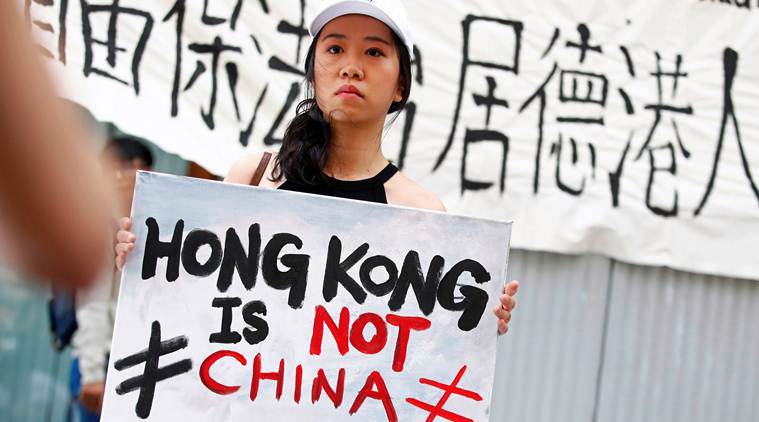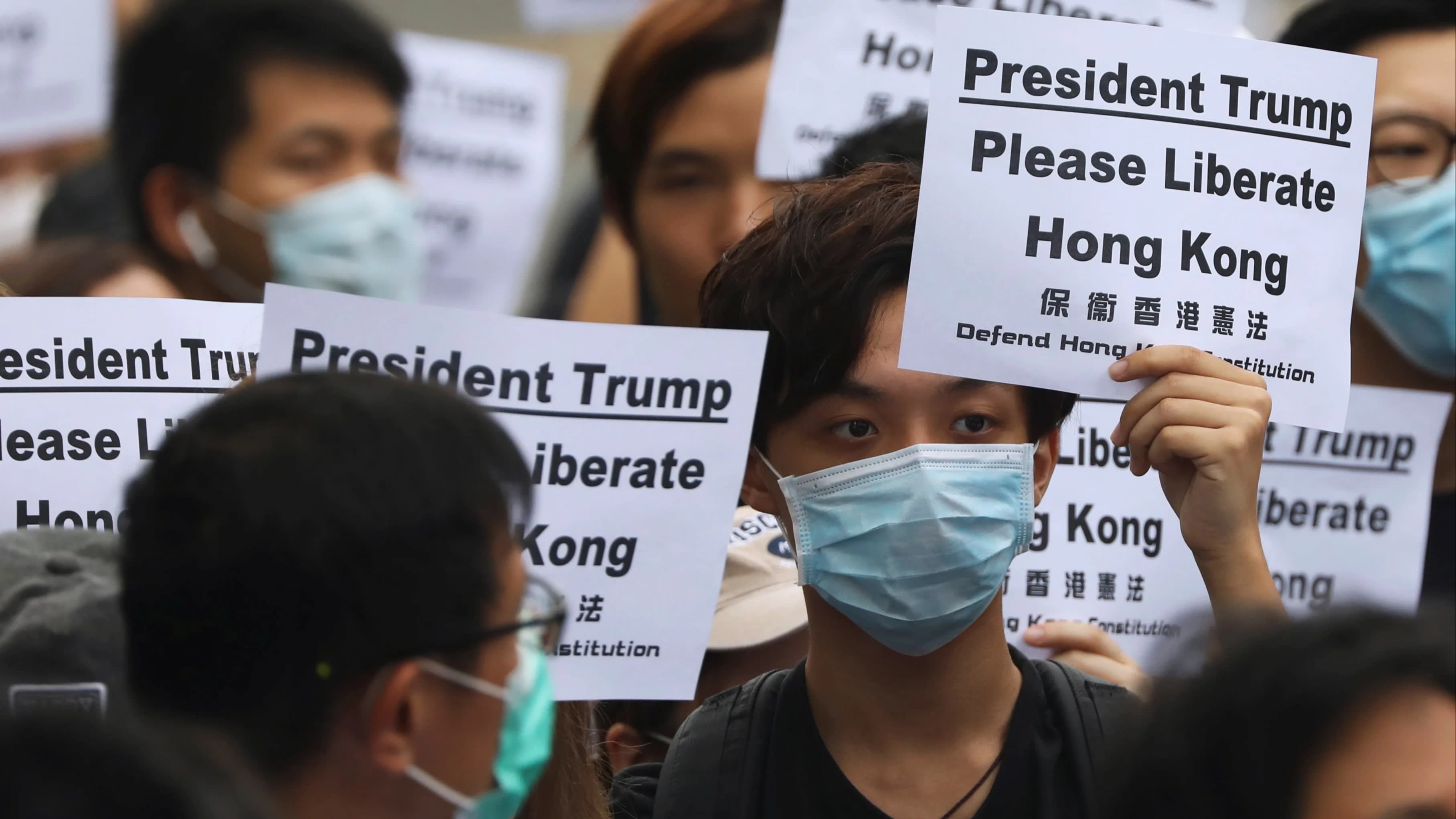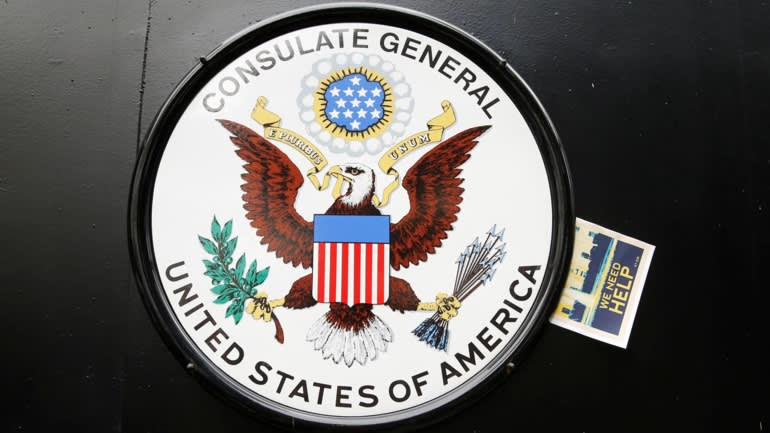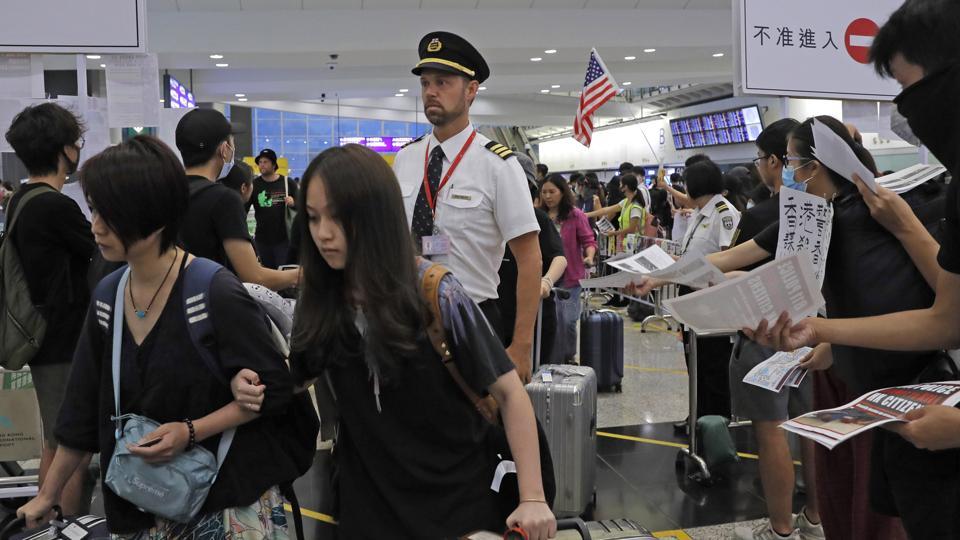Hong Kong activist Joshua Wong vows to fight 'long term battle' after surprise release
Hong Kong activist Joshua Wong vows to fight 'long term battle' after surprise release

Nicola Smith
,
The Telegraph•June 17, 2019
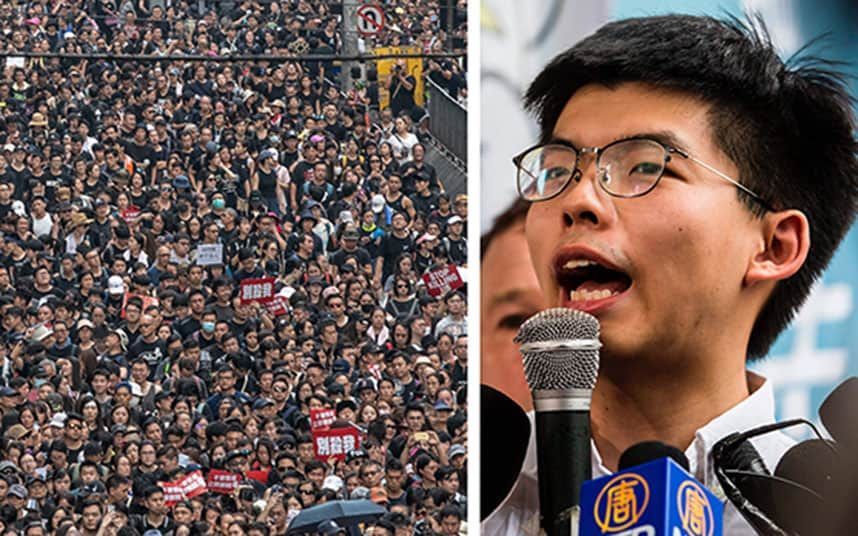
Joshua Wong, one of Hong Kong’s most renowned pro-democracy activists, vowed to fight the “long term battle” for the city’s freedoms after his surprise release from jail on Monday morning.
Mr Wong, 22, who became the face of the “Occupy” movement five years ago when he was just a teenager, was freed from the Lai Chi Kok Correctional Institute halfway through a delayed two month sentence for obstructing the clearance of a major protest camp during the 2014 mass protests.
The exact reasons for his release remain unconfirmed, but the timing suggests Hong Kong’s authorities may have been seeking to ease public tension after what may have been the city’s largest rally since 1989, when citizens flooded the streets in support of Tiananmen Square activists.
Protest groups on Sunday claimed that two million people had clogged the streets of the financial hub, demanding the resignation of Hong Kong leader Carrie Lam and the scrapping of a controversial extradition law that leaves citizens vulnerable to being renditioned into China’s opaque justice system.
Granting the freedom of a charismatic youth leader at a time when the grassroots protest movement is building momentum was an unusual move by the Lam administration.
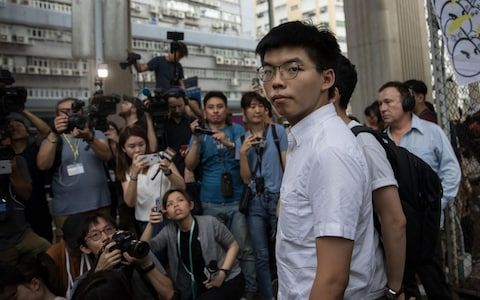
Joshua Wong thanks the media after being released Credit: Rex
But it perhaps indicated the government’s growing desperation to claw back public trust during one of Hong Kong’s worst political crises in decades.
The announcement of his release was made late on Sunday after Ms Lam issued a rare apology for misjudging the public’s views and pledged to “adopt a most sincere and humble attitude.”
Addressing a media scrum on the side of the road in fluent Cantonese, Mandarin and English, Mr Wong said he was ready to rejoin the frontlines of the pro-democracy movement and immediately echoed their demands for Ms Lam to step down.
If she did not do so before the 22nd anniversary in July of Hong Kong’s handover to China, even more people would throng the streets to “join our fight until we get our basic human rights and freedom.”
Mr Wong praised the “spirit and dignity of the Hong Kong people” who have staged two massive demonstrations against the extradition bill within the past two weeks, the first on June 9, when organisers claimed one million marchers.
Hong Kong activist Joshua Wong vows to fight 'long term battle' after surprise release

Nicola Smith
,
The Telegraph•June 17, 2019
Joshua Wong, one of Hong Kong’s most renowned pro-democracy activists, vowed to fight the “long term battle” for the city’s freedoms after his surprise release from jail on Monday morning.
Mr Wong, 22, who became the face of the “Occupy” movement five years ago when he was just a teenager, was freed from the Lai Chi Kok Correctional Institute halfway through a delayed two month sentence for obstructing the clearance of a major protest camp during the 2014 mass protests.
The exact reasons for his release remain unconfirmed, but the timing suggests Hong Kong’s authorities may have been seeking to ease public tension after what may have been the city’s largest rally since 1989, when citizens flooded the streets in support of Tiananmen Square activists.
Protest groups on Sunday claimed that two million people had clogged the streets of the financial hub, demanding the resignation of Hong Kong leader Carrie Lam and the scrapping of a controversial extradition law that leaves citizens vulnerable to being renditioned into China’s opaque justice system.
Granting the freedom of a charismatic youth leader at a time when the grassroots protest movement is building momentum was an unusual move by the Lam administration.
Joshua Wong thanks the media after being released Credit: Rex
But it perhaps indicated the government’s growing desperation to claw back public trust during one of Hong Kong’s worst political crises in decades.
The announcement of his release was made late on Sunday after Ms Lam issued a rare apology for misjudging the public’s views and pledged to “adopt a most sincere and humble attitude.”
Addressing a media scrum on the side of the road in fluent Cantonese, Mandarin and English, Mr Wong said he was ready to rejoin the frontlines of the pro-democracy movement and immediately echoed their demands for Ms Lam to step down.
If she did not do so before the 22nd anniversary in July of Hong Kong’s handover to China, even more people would throng the streets to “join our fight until we get our basic human rights and freedom.”
Mr Wong praised the “spirit and dignity of the Hong Kong people” who have staged two massive demonstrations against the extradition bill within the past two weeks, the first on June 9, when organisers claimed one million marchers.

